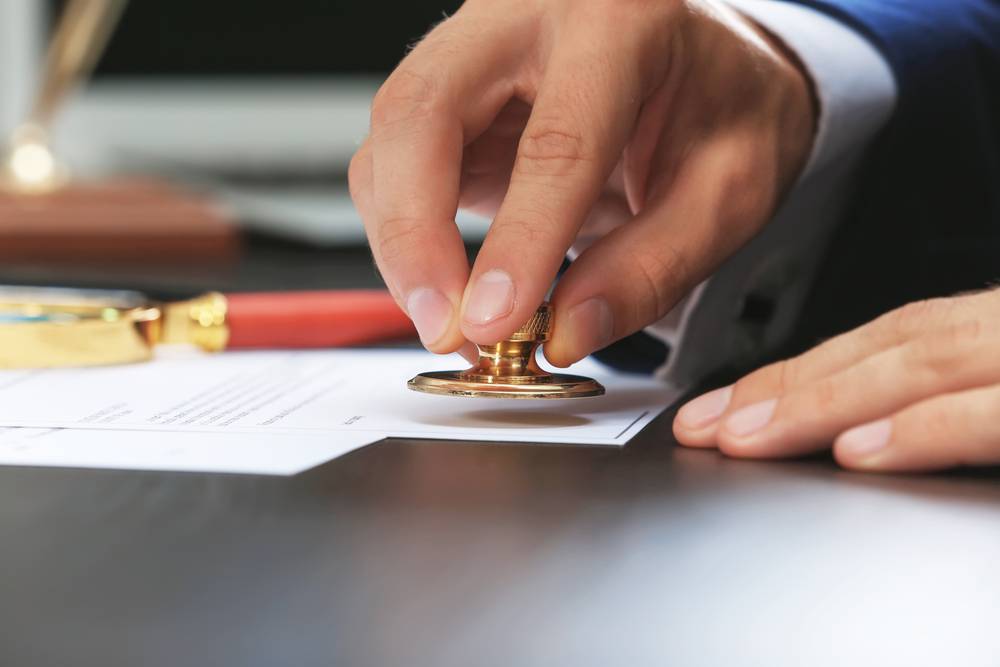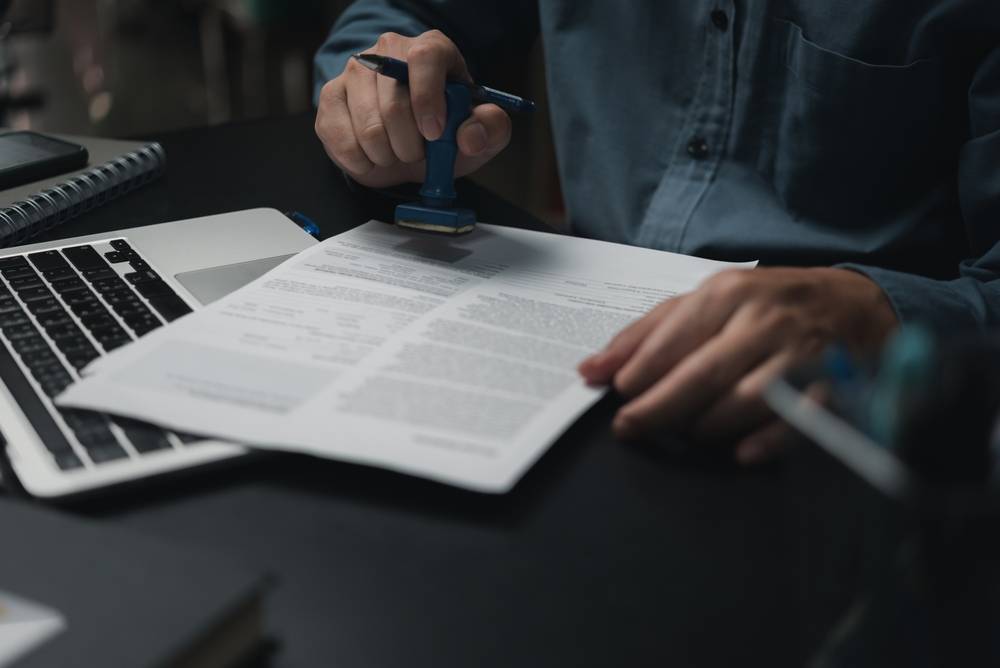Everything you need to know about the guarantees offered by sworn translations
Authorized translators often work for individuals, companies, administrations or even legal authorities. But sworn translations are first and foremost documents that have guarantees. As such, they have legal weight recognized in France and abroad.
So, what guarantees do sworn translations offer? What physical and human methods are implemented to preserve these guarantees? From the guarantee of accuracy to legal recognition, here we´ll discover everything about the main guarantees offered by sworn translations.


Sworn translations and their guarantee of accuracy
A sworn translation´s guarantee of accuracy is essential for translations to be used by companies and administrative or legal authorities.
What is a sworn translation´s guarantee of accuracy
A sworn translation´s guarantee of accuracy certifies that it is a true and correct copy of the original document. Sworn translators are required in several sectors such as:
- industry;
- gastronomy;
- the legal system;
- education;
- business;
- mechanics;
- technology;
- law;
Each sector has its own rules and terminology. Likewise, to translate a text from a source language to a target language, it is essential to understand the specifics of the two languages. Sworn translators are professionals in translation studies.
However, documents produced by authorized translators may be consulted and used abroad. Those who consult these documents may include:
- French citizens;
- foreign citizens;
- private companies;
- public enterprises;
- associations;
- regional governments;
- universities;
- courts;
- administrative authorities;
For all these individuals or entities, the guarantee of accuracy is required because they need to know that they have true and correct documents. But what methods are used to guarantee this accuracy?
How to verify a sworn translation´s guarantee of accuracy?
To verify the guarantee of accuracy of sworn translations, elements are added to each document and on each page, if the document has several pages. As such, the recipients of the translations can be certain that the document is authentic and is a true and correct copy of the original.
The following elements guarantee the accuracy of a sworn translation:
- the authorized translator´s full name;
- the authorized translator´s signature and stamp;
- the unique registration number provided by the translator
This registration number is also called the ne varietur number. It is handwritten by the sworn translator on the translation and the original document.
These elements must be added by the sworn translator, meaning that he or she is responsible for each project and translated document. By signing and stamping the translation, the sworn translator (meaning that he or she has sworn an oath) guarantees that his or her translation is a true and correct copy of the original document.
Generally, sworn translators work in translation agencies. They can thus offer more guarantees thanks to norms such as:
- translation norm EN 15038;
- translation norm ASTM F2575


The legal recognition of sworn translations
The fact that a sworn translation is certified to be a true and correct copy of the original document means that it can be used in legal contexts. The legal recognition of sworn translations stems from the guarantee of accuracy.
How sworn translators are nominated
Being a sworn translator is not just any other job. You can only become a sworn translator if you take a competitive exam or by earning a degree because sworn translators are nominated by:
- the court of appeals
- the court of cassation
Legal jurisdictions allow translators to become sworn translators. In the past, candidates submitted an application in the prefect. A character check was then conducted by the police to confirm that the candidate’s life and social circle are compatible with the authorized translation profession.
After an overall analysis, the court of appeals or the court of cassation nominates sworn translators for a period of 5 years. Translators must swear an oath to be able to practice.
Sometimes called “expert translators of the court of appeals” sworn translators can work for:
- attorneys;
- CID officers;
- Magistrates;
Sworn translators work in close collaboration with the justice system by providing authenticated and certified documents. The legal recognition of a translation starts with a methodical selection of translators by the court of appeals or the court of cassation.
Sworn translations
Sworn translations are provided for everyday documents that are essential for several administrative and legal proceedings. Authorized translators are specialized in several languages to be able to translate requested documents such as:
- criminal records;
- degrees;
- business contracts
- marriage certificates;
- birth certificates;
- death certificates;
- general sales conditions;
- patents;
- car registration documents;
- French or foreign drivers’ licenses;
- notary certificates;
- deeds of sale;
Whether provided for legal documents, business contracts or administrative documents, sworn translations are everywhere in daily life. All these documents may be required when you arrive in a foreign country to obtain a visa, rent lodging or obtain employment.
This also applies for foreigners who arrive in France: the administration can require them to provide these documents. In that case they must hire a sworn translator to translate an original document to French. Once the translation is finished, a sworn translator must clearly mention the original document´s language and the target language.
The legal use of sworn translations
Sworn translations offer a legal guarantee thanks to the authorized translator´s signature and stamp. This legal guarantee is used in France and all countries that have signed the Convention de La Haye de 1961. Countries that have not signed said convention require another procedure to validate the legal recognition of these documents: a legalization.
In France and other countries that have signed the Convention, the apostille is a procedure that is complementary to sworn translations. It is in some ways an additional certification. In France or abroad, you should check with the presiding authorities to see if your original document requires:
- a sworn or certified translation;
- an apostille;
- a legalization.
In conclusion, a sworn translation´s guarantees allow French and foreign authorities to meet the needs of their citizens and companies. They are essential for the correct functioning of states and for international collaboration.
